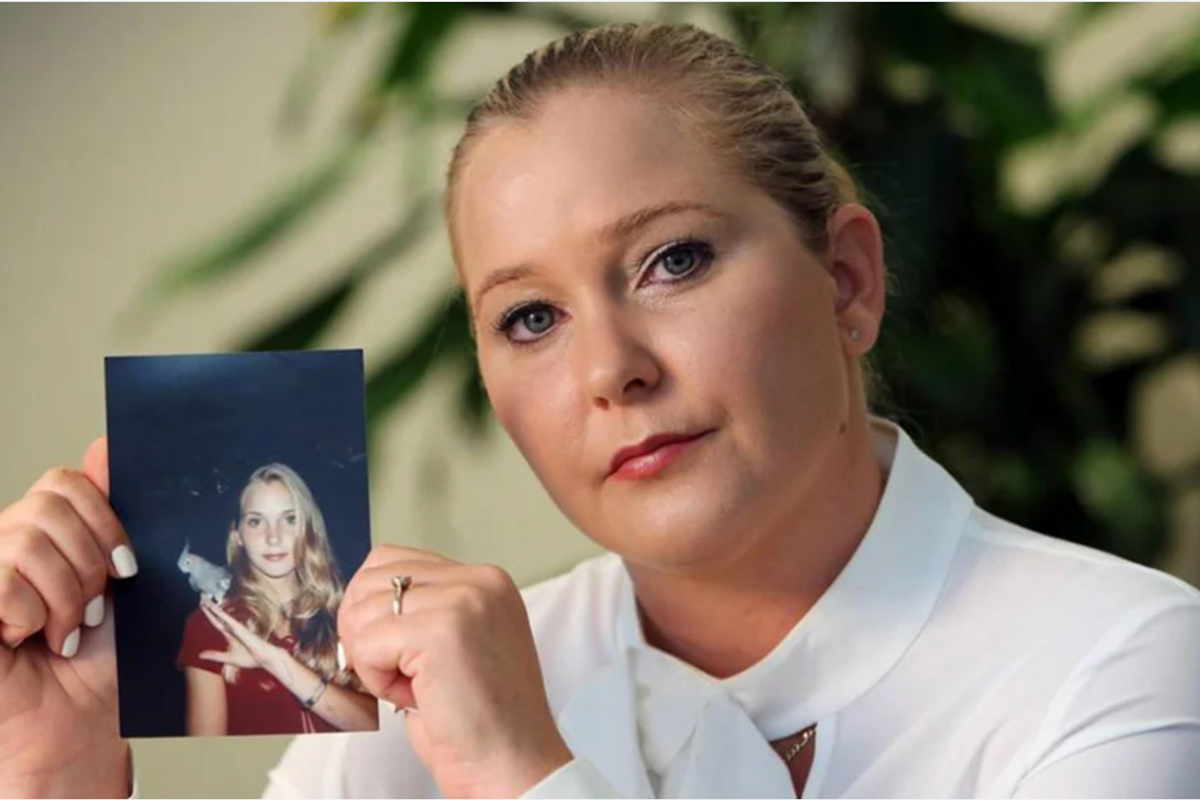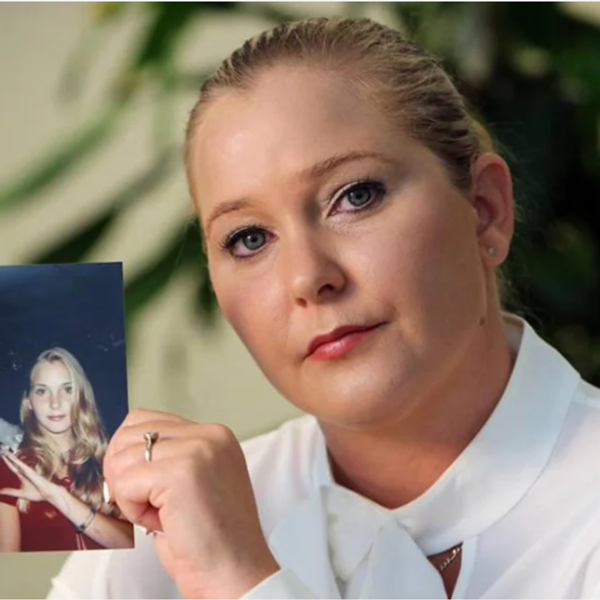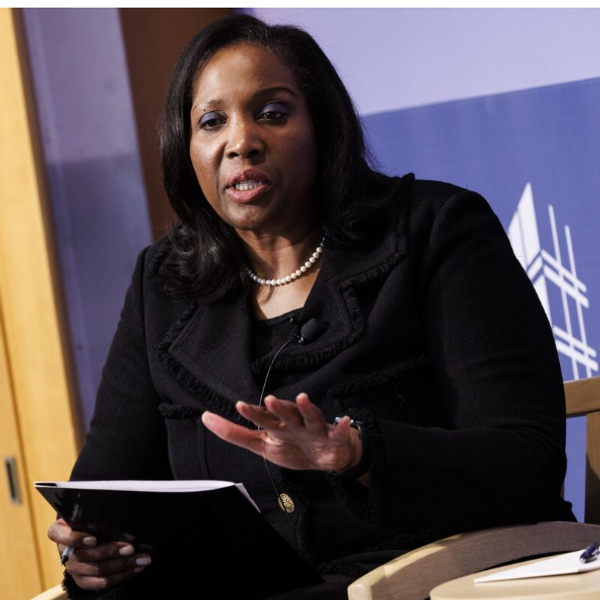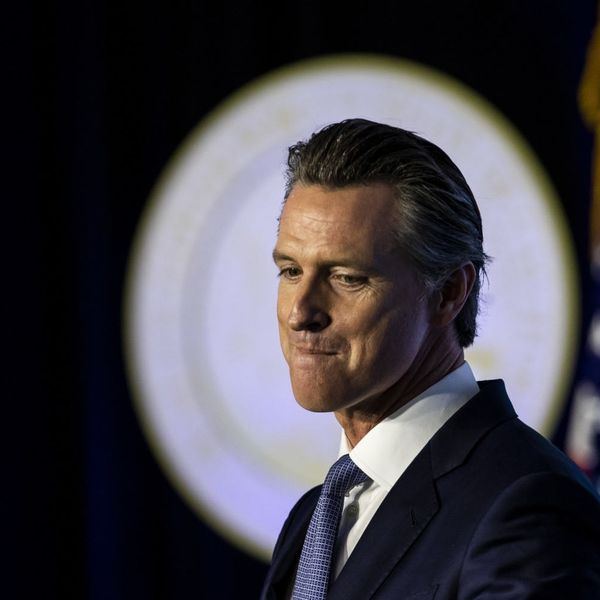Speaker Mike Johnson
Multiple GOP lawmakers this week accused California Democrats of corruptly trying to redraw their state’s congressional districts, even though the Golden State is moving to redraw its maps only to counter the naked power grab Republicans pulled off in Texas with their mid-decade gerrymander.
House Speaker Mike Johnson—who supported the Texas redraw that could boot as many as five Democratic House members—said California Gov. Gavin Newsom’s planned redraw is "a slap in the face to Californians who overwhelmingly support the California Citizens Redistricting Commission."
"Gavin Newsom should spend less time trampling his state’s laws for a blatant power grab, and more time working to change the disastrous, far-left policies that are destroying California," Johnson wrote.
Funny, you could say basically the same thing about Texas GOP Gov. Greg Abbott, who was more focused on rigging the midterms for Republicans and his dear leader, President Donald Trump, than helping his state recover from devastating flooding that killed dozens of people.
Other House Republican leaders also slammed California’s redraw while ignoring Texas’.
“The NRCC is prepared to fight this illegal power grab in the courts and at the ballot box to stop Newsom in his tracks,” National Republican Congressional Committee Chair Richard Hudson said in a statement, accusing Newsom of “disenfranchising voters to prop up his Presidential ambitions.”
But when he was asked earlier in August about Texas’ gerrymander, Hudson demurred.
“Well, it’s up to the states. I mean, I have nothing to do with it. I found out about it when you all wrote about it,” Hudson told reporters, adding later that he was “not “concerned” about California’s redraw.
“Some of the states, they can do what they want to do,” Hudson said—before it was clear just how serious California was about countering Texas’ power grab.
Other Republicans cooked up their own criteria to claim that Democrats gerrymander more often than Republicans do, when the opposite is true.
Texas Republican Sen. Ted Cruz, who comes from the state that fired the first shot in this latest redistricting war, also slammed California without taking a look in the mirror.
"Newsom & Obama are lying and they are hypocrites," Cruz wrote in a post on X. "The most egregious gerrymanders in the country are virtually ALL Democrat."
Cruz then made up a metric he thought would prove his point, asking Elon Musk's AI chatbot Grok to "Examine states with six or more congressional seats. Compile a list of the five most egregious gerrymanders, defined as the biggest delta between the percentage of the congressional delegation a party wins & the percentage that party wins statewide."
"Which party is it?" Cruz asked Grok.
But Grok's response showed that Republican-run states also have gerrymanders that are "egregious" based on Cruz's metric, including Tennessee and Wisconsin. Not to mention, Cruz limiting the list to states with six or more districts leaves out a number of Republican-run states that heavily gerrymander their seats, including Oklahoma, Arkansas, Utah, and Iowa, among others.
Republican Rep. Kevin Kiley, whose House seat would be nuked if California voters allow the state to redraw its congressional map, also made the rounds on cable news shows to whine.
"When elections are fair, Republicans win. That's why we should end gerrymandering and establish Voter ID nationwide. And it's why Newsom is trying to permanently rig our elections by making himself Gerrymanderer-in-Chief," Kiley said.
Of course, Democrats would love to end gerrymandering nationwide. It's why it was in the first bill House Democrats introduced in 2019 after they took back control of the House in the 2018 midterms. Not a single Republican voted for the bill, and the GOP controlled Senate never brought it up for a vote.
Republican Rep. Ken Calvert, who would also be drawn out of his House seat in the California plan, also complained about California's redistricting effort without complaining about what Texas did first.
"There is zero transparency as Sacramento Democrats scheme to eliminate the power of the Independent Citizens Redistricting Commission," Calvert moaned.
At the end of the day, Republicans are merely getting a taste of their own medicine in the redistricting wars. And it looks like they don't like it.
Reprinted with permission from Daily Kos.
- Did gerrymandering keep Republicans from a bigger majority ... ›
- Trump faces escalating Republican revolt on redistricting ›
- What CA GOP says about Texas in fight over Newsom gerrymander ... ›
- U.S. House Speaker Johnson, Gov. Landry split on new ... ›
- Republican politicians looking to gerrymander Ohio and Texas to ... ›
Start your day with National Memo Newsletter
Know first.
The opinions that matter. Delivered to your inbox every morning










